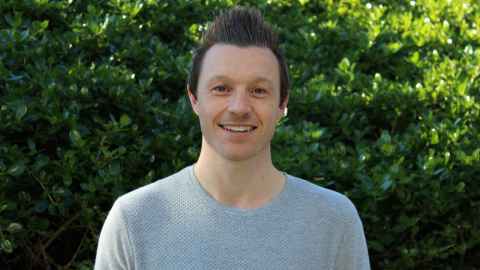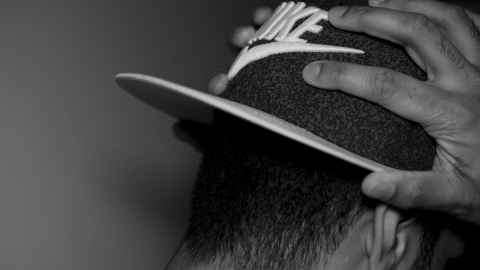Quest for a cure for brain injuries gains $1.2m grant
1 September 2025
Finding a drug that will help people recover from brain injuries is front of mind for University of Auckland senior research fellow Dr Justin Rustenhoven.

Dr Justin Rustenhoven is on a mission to find a drug that will help people with brain injuries to recover.
“Traumatic brain injuries can take a huge toll on people’s lives, yet no medicines are currently available to help,” says Rustenhoven, who leads a lab at Waipapa Taumata Rau, University of Auckland's Centre for Brain Research.
In New Zealand, brain injuries cost about $250 million a year and affect about 35,000 people – a far higher rate than in other developed countries. Māori suffer 23 percent more brain injuries than other New Zealanders.
The Health Research Council has just granted $1.2 million to Rustenhoven and his team to work on finding a drug that will help reduce the problems people experience after head injuries.
The research focuses on preventing fibrosis, which is like scar tissue, forming on protective membranes that surround the brain, called meninges.
Brain scientists from the University of Auckland and Washington University in St Louis recently published a groundbreaking paper showing that scarring on the meninges impairs brain drainage systems as we age, hindering the removal of harmful waste from the brain.
Now, his team will be the first in New Zealand to look at whether scarring on the meninges impedes waste clearance after brain injuries.
“The drainage network in the brain is critical to remove all these toxic proteins, leaked blood products and the cellular debris that can be caused by brain injuries.
“Problems with waste clearance appear to be a major cause of symptoms after head injuries,” he says.

They will test about 1,200 different drugs that have been approved by the United States Food and Drug Administration (FDA), to see if any of them help prevent scar tissue from forming or reduce its extent after it has formed on the meninges.
The drug experiments will be carried out on cells donated from patients undergoing brain surgery at Auckland Hospital and on cells from brains donated by people after they die. These are held within the Hugh Green Biobank and the Neurological Foundation Human Brain Bank at the University.
Using techniques developed by University of Auckland Professor Mike Dragunow, Rustenhoven will grow meningeal cells in the lab from the donated tissue and use these as a model to test potential treatments.
“The blood vessels in the brain are really good at not letting drugs into the brain, so luckily we can bypass that by targeting the meninges, which sit outside the blood-brain barrier,” Rustenhoven says.
Experiments will also be carried out on mice, allowing the researchers to see the effects of the drugs they are testing within complex biological systems.
“We have already found some promising drugs, which we want to test on the mice,” he says.
Rustenhoven’s research is shaped by an unexpected turn his life took, soon after he graduated with a PhD in pharmacology from Waipapa Taumata Rau, University of Auckland in 2017.
After stumbling across a video of US neuroscientist Professor Jonathan Kipnis, who had just discovered the lymphatic system that drains waste from the brain, Rustenhoven contacted Kipnis – and was on a plane to the US two months later.
“I ended up doing five years of post-doctoral study with Kipnis, at the University of Virginia and then Washington University in St Louis,” the 34-year-old says.
A Rutherford Discovery Fellowship in 2021 provided the opportunity for Rustenhoven to return to New Zealand, where he began combining what he had learnt in the US and Auckland.
Last year, he received a Marsden Fund grant for research into treating the scar tissue that gradually builds ups on membranes surrounding the brain as people age.
The Neurological Foundation and Auckland Medical Research Foundation have funded parallel research Rustenhoven is conducting on the role of waste drainage systems in the brains of people with Parkinson’s disease.
The research team investigating treatments for brain injuries includes Professor Dragunow, Dr Simon O’Carroll, Professor Kipnis, University of Sydney Professor Jenny Gamble, and Rustenhoven’s lab team: PhD student Kate Hitpass Romero, Dr Taylor Stevenson, and Dr Sam McCullough.
Media contact
Rose Davis | Research communications adviser
M: 027 568 2715
E: rose.davis@auckland.ac.nz